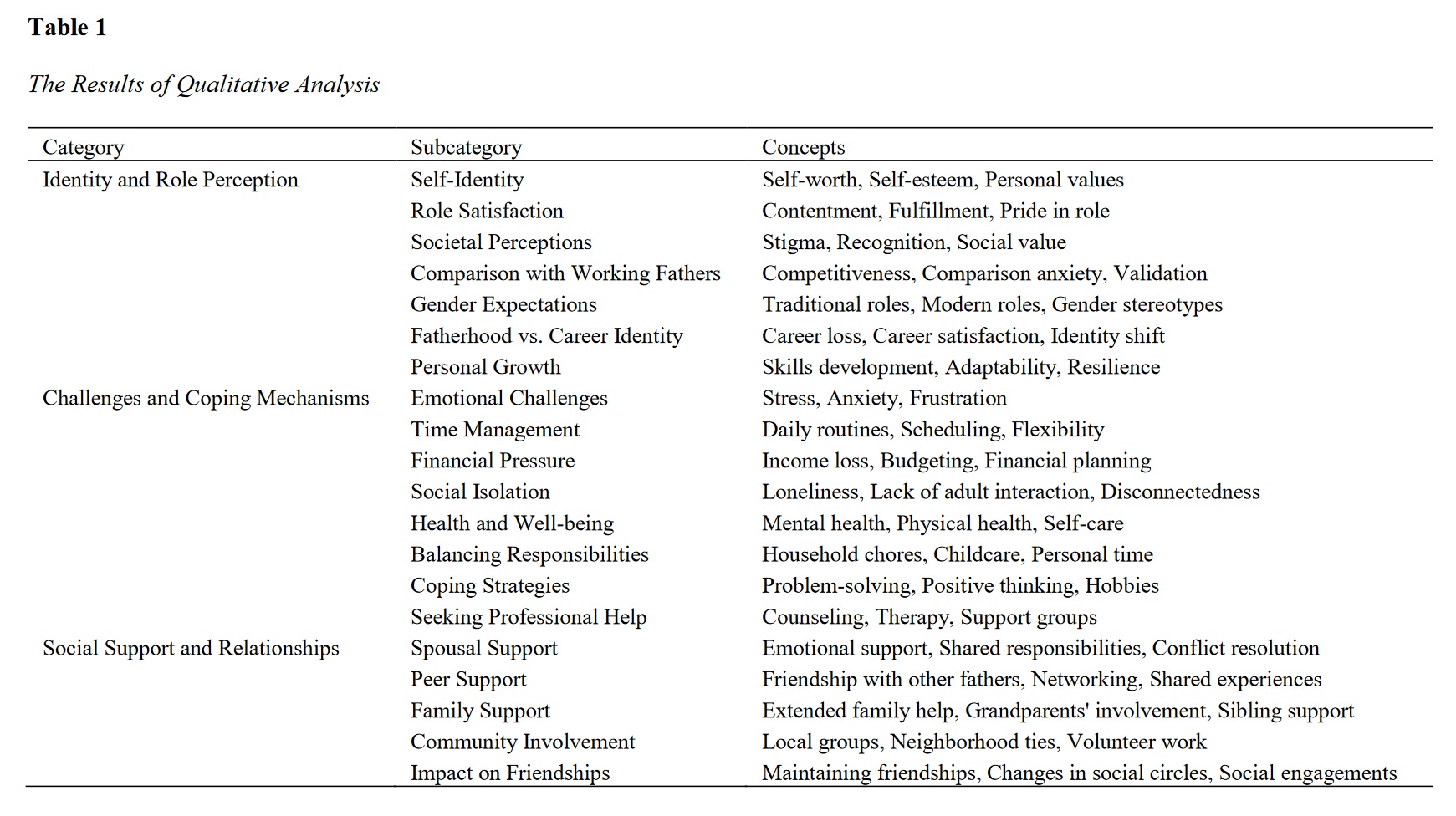Exploring the Psychological Well-being of Stay-at-Home Fathers
Keywords:
Stay-at-home fathers, psychological well-being, self-identity, coping mechanisms, social support, qualitative research, mental health, parenting, gender rolesAbstract
This study aims to explore the psychological well-being of stay-at-home fathers (SAHFs), focusing on their self-identity and role perception, the challenges they face, and the coping mechanisms they employ. A qualitative research design was employed, utilizing semi-structured interviews to gather data from 24 SAHFs. Participants were selected through purposive sampling to ensure a diverse representation. The interviews were conducted either in-person or via video conferencing, lasting between 45 to 90 minutes. Data were transcribed verbatim and analyzed using NVivo software. Thematic analysis was used to identify key themes and patterns in the data, providing an in-depth understanding of the participants' experiences. The study identified three main themes: Identity and Role Perception, Challenges and Coping Mechanisms, and Social Support and Relationships. SAHFs experienced significant shifts in self-identity, moving from career-focused to fatherhood-centered roles. They faced various emotional challenges, including stress, anxiety, and social isolation, exacerbated by time management and financial pressures. Social support from spouses, peers, and community involvement played a crucial role in mitigating these challenges. The importance of robust support networks and community engagement was underscored, highlighting the need for tailored interventions to enhance the well-being of SAHFs. The psychological well-being of SAHFs is influenced by a complex interplay of identity shifts, societal perceptions, and the challenges of managing daily responsibilities. Social support emerges as a critical factor in promoting mental health and reducing feelings of isolation. This study contributes to the understanding of SAHFs' experiences and underscores the need for targeted support systems and policies to address their unique challenges. Future research should expand on these findings with larger, more diverse samples and explore the long-term impacts of being a SAHF.
Downloads

Downloads
Additional Files
Published
Issue
Section
Categories
License
Copyright (c) 2024 Neşe Köse (Corresponding Author); Farhad Namjoo (Author)

This work is licensed under a Creative Commons Attribution-NonCommercial 4.0 International License.


















